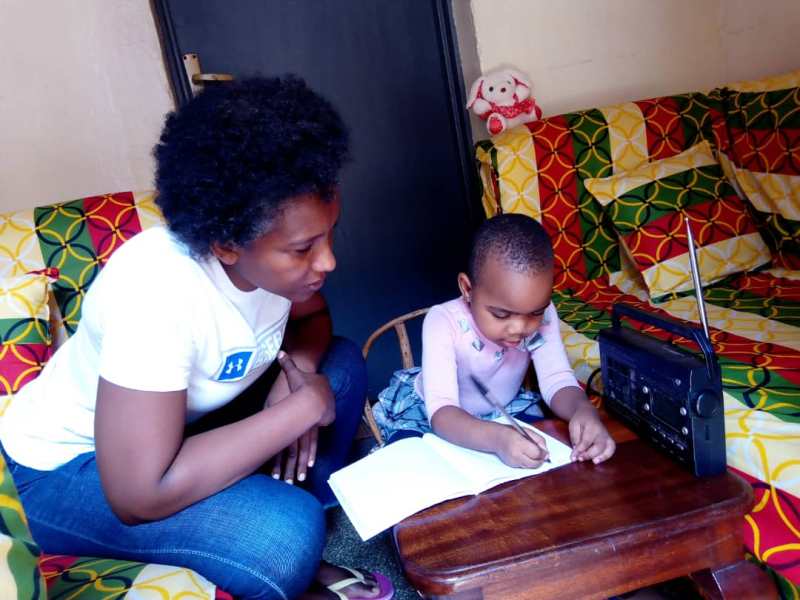E-learning; who is coaching who between parents and children in covid-19 era?

The parent who coaches her child on radio at home
Some parents claim to not be able to coach their children who are currently following their studies from home on Televisions and radio, following the closing of schools in order to stop the spreading of covid-19, because what is taught in schools nowadays is beyond their intellectual capacity and often in the language they don’t master.
Mukundente (name changed on her demand), a parent in Nyarugenge district, Kigali city, says that his son who is in fourth grade of primary is better than her in English, so whenever the son asks her mother to help on a complicated subject, the mother get always humiliated because she can’t speak English nor explaining something that’s in that language.
Denyse Kantengwa, a parent in Nyagatare district, Eastern province says that only what she knows she can teach her children, but when it comes to those complicated subjects on radio, where they teach in English in addition, she can’t do anything about it, so she tells children to write down what they have listened so that they can later ask their neighbors.
Some affirm that it’s complicated for a child alone
Other parents affirm that it’s difficult for a child to self-coach in the e-learning program on radio or television; Grace Ingabire, a parent in Kicukiro district, Kigali city said “before my children start to follow the program on television, I took time myself and followed the whole program, I can assure you that it’s difficult for a child to self-teach, this program is not that easy for children.”
Emmanuel Harerimana, a teacher from Rusizi district in western province says that teaching follow a logical sequence, which makes it difficult to understand the next lesson if you didn’t understand the previous one, the reason why children need to be in presence of a teacher or a coach, preferably face to face.
What do education institutions say about the issue?
Government officials in charge of education say to be aware of different challenges of e-learning program as an alternative of closing schools, however, they don’t see self-coaching as an issue.
Dr. Irenée Ndayambaje, the Director general of Rwanda education board says that parents were not asked to coach their children but to assist them in terms of monitoring their attendance and timekeeping. He said “the same way Christians prepare and attend the online religious services, ready to follow and on time, this is the way we want parents to be helping their children to be on time for radio and television studies programs.”
In normal situation in Rwandan education, only education professionals are allowed to teach or coach in schools. The e-learning program is expected to be a long-term solution for education in Rwanda as long as covid-19 is there, with promises that challenges will be faced and dealt with one after another.

